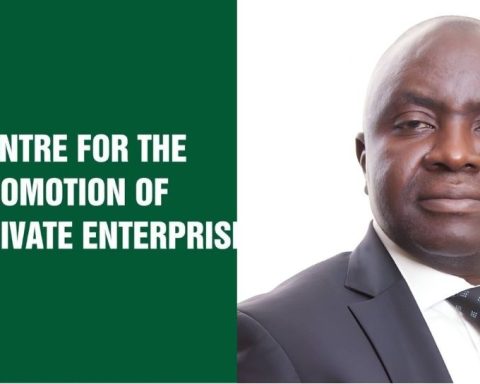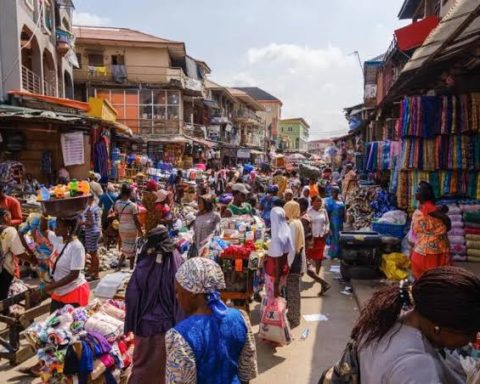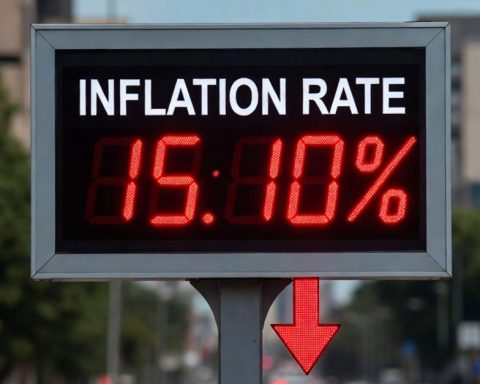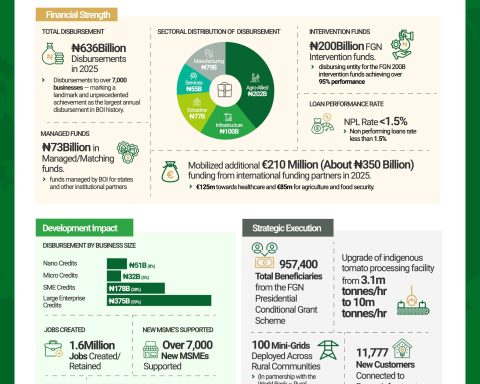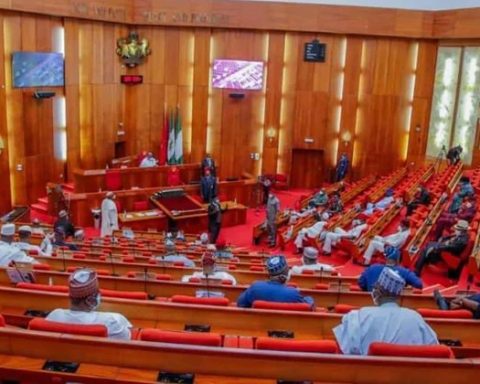The Centre for the Promotion of Private Enterprise (CPPE) has commended the National Bureau of Statistics (NBS) for the successful rebasing of Nigeria’s Gross Domestic Product (GDP), describing the exercise as a significant step toward enhancing the credibility, relevance, and international comparability of the country’s economic data.
The rebasing, anchored to a new base year of 2019, was announced in July and reflects the structural changes in Nigeria’s economy, including shifts in consumption patterns, production technologies, and sectoral dynamics.
Join our WhatsApp ChannelMore Accurate Picture of the Economy
According to CPPE Director and Chief Executive Officer, Dr Muda Yusuf, the rebasing exercise provides a “more realistic and comprehensive picture of the Nigerian economy,” which is crucial for effective policy formulation and investment decisions.
“This rebasing enhances Nigeria’s economic credibility and enables better benchmarking with global peers,” Yusuf said in a statement issued on Sunday, 3 August 2025.
He noted that GDP rebasing is a vital statistical update that ensures the national accounts remain aligned with current realities and international best practices.
The revised nominal GDP figure for 2024 stands at ₦372.82 trillion, representing a 41 percent increase over the previous 2019 base year. The economy recorded a full-year growth rate of 3.38 percent in 2024. In the first quarter of 2025, growth moderated slightly to 3.13 percent, with total quarterly output estimated at ₦94 trillion. This brings the cumulative GDP to ₦466 trillion, or about 300 billion US dollars.
CPPE projects that Nigeria’s GDP could reach 450 billion dollars by the end of 2025, barring major disruptions.
READ ALSO: Foreign Airlines In Nigeria And Keyamo’s Sleepless Nights
Afe Babalola Saga: Dele Farotimi’s Book Turns Gold In Bookshops
Sectoral Insights: Mixed Outcomes
The rebased data sheds light on evolving sectoral contributions and highlights areas of concern.
A total of 37 sectors recorded growth, although many showed slower momentum. Nine sectors contracted, while three remained in recession due to consistent negative growth over several quarters.
Top-performing sectors in Q1 2025 included
• Metal ores (25 percent)
• Financial services (15.3 percent)
• Transportation (14.08 percent)
• Oil refining (11.51 percent)
• ICT (7.4 percent)
Sectors that contracted include
• Livestock (minus 16.7 percent)
• Coal mining (minus 22.3 percent)
• Textiles (minus 1.63 percent)
• Plastics and rubber (minus 3.2 percent)
• Air transport (minus 0.81 percent)
• Fishing (minus 0.21 percent)
• Quarry and minerals (minus 21.55 percent)
• Iron and steel (minus 0.35 percent)
The textile, coal mining, and air transport sectors were identified as being in recession.
Despite the dominance of the non-oil sector, which contributed 96.03 percent to Q1 2025 GDP, its share in government revenue remains disproportionately low. In contrast, the oil sector accounted for just 3.97 percent of output.
Updated Sector Rankings and Contributions
The rebasing also shifted the rankings of top contributors to GDP. Crop production led with 17.58 percent, followed closely by trade at 17.42 percent, and real estate at 10.78 percent. ICT contributed 6.18 percent, while crude oil and gas accounted for 5.85 percent.
The share of agriculture improved from 22.12 percent to 25.8 percent, while the services sector rose to 53.09 percent, up from 50.22 percent before the rebasing.
Policy Recommendations
The CPPE issued a series of policy recommendations to address observed gaps and build on positive trends:
• Targeted support for underperforming and contracting sectors, particularly agriculture, manufacturing, livestock, and textiles.
• Sustained investment in high-growth sectors such as ICT, finance, transportation, and oil refining.
• Bridging the revenue gap between the non-oil sector’s GDP share and its low fiscal contribution through improved tax administration and economic formalisation.
• More frequent GDP rebasing, in line with global best practices, to ensure data remains current and reflective of economic realities.
• Stronger stakeholder engagement, involving government, private sector players, researchers, and development partners in shaping effective economic policies.
A Call for Data-Driven Decision-Making
Dr Yusuf lauded the NBS for executing the rebasing exercise despite limited resources and called for continued investment in data infrastructure.
“We urge all stakeholders policymakers, investors, and development partners to leverage these improved statistics for strategic planning and economic transformation,” he said.
He emphasised that reliable, timely, and relevant data remains key to guiding Nigeria toward inclusive and sustainable economic growth.
Amanze Chinonye is a Staff Correspondent at Prime Business Africa, a rising star in the literary world, weaving captivating stories that transport readers to the vibrant landscapes of Nigeria and the rest of Africa. With a unique voice that blends with the newspaper's tradition and style, Chinonye's writing is a masterful exploration of the human condition, delving into themes of identity, culture, and social justice. Through her words, Chinonye paints vivid portraits of everyday African life, from the bustling markets of Nigeria's Lagos to the quiet villages of South Africa's countryside . With a keen eye for detail and a deep understanding of the complexities of Nigerian society, Chinonye's writing is both a testament to the country's rich cultural heritage and a powerful call to action for a brighter future. As a writer, Chinonye is a true storyteller, using her dexterity to educate, inspire, and uplift readers around the world.
- Amanze Chinonye
- Amanze Chinonye
- Amanze Chinonye
- Amanze Chinonye
- Amanze Chinonye
- Amanze Chinonye
- Amanze Chinonye
- Amanze Chinonye
- Amanze Chinonye
- Amanze Chinonye
- Amanze Chinonye
- Amanze Chinonye
- Amanze Chinonye
- Amanze Chinonye
- Amanze Chinonye
- Amanze Chinonye
- Amanze Chinonye
- Amanze Chinonye
- Amanze Chinonye
- Amanze Chinonye
- Amanze Chinonye
- Amanze Chinonye
- Amanze Chinonye
- Amanze Chinonye
- Amanze Chinonye
- Amanze Chinonye
- Amanze Chinonye
- Amanze Chinonye
- Amanze Chinonye
- Amanze Chinonye
- Amanze Chinonye
- Amanze Chinonye
- Amanze Chinonye
- Amanze Chinonye
- Amanze Chinonye
- Amanze Chinonye
- Amanze Chinonye
- Amanze Chinonye
- Amanze Chinonye
- Amanze Chinonye
- Amanze Chinonye
- Amanze Chinonye
- Amanze Chinonye
- Amanze Chinonye
- Amanze Chinonye
- Amanze Chinonye
- Amanze Chinonye
- Amanze Chinonye
- Amanze Chinonye
- Amanze Chinonye
- Amanze Chinonye
- Amanze Chinonye
- Amanze Chinonye
- Amanze Chinonye
- Amanze Chinonye
- Amanze Chinonye
- Amanze Chinonye
- Amanze Chinonye
- Amanze Chinonye
- Amanze Chinonye
- Amanze Chinonye
- Amanze Chinonye
- Amanze Chinonye
- Amanze Chinonye
- Amanze Chinonye
- Amanze Chinonye
- Amanze Chinonye
- Amanze Chinonye
- Amanze Chinonye
- Amanze Chinonye
- Amanze Chinonye
- Amanze Chinonye
- Amanze Chinonye
- Amanze Chinonye
- Amanze Chinonye
- Amanze Chinonye
- Amanze Chinonye
- Amanze Chinonye
- Amanze Chinonye
- Amanze Chinonye
- Amanze Chinonye
- Amanze Chinonye
- Amanze Chinonye
- Amanze Chinonye
- Amanze Chinonye
- Amanze Chinonye
- Amanze Chinonye
- Amanze Chinonye
- Amanze Chinonye
- Amanze Chinonye
- Amanze Chinonye
- Amanze Chinonye
- Amanze Chinonye
- Amanze Chinonye
- Amanze Chinonye
- Amanze Chinonye
- Amanze Chinonye
- Amanze Chinonye
- Amanze Chinonye
- Amanze Chinonye
- Amanze Chinonye
- Amanze Chinonye
- Amanze Chinonye
- Amanze Chinonye
- Amanze Chinonye
- Amanze Chinonye
- Amanze Chinonye
- Amanze Chinonye
- Amanze Chinonye
- Amanze Chinonye
- Amanze Chinonye
- Amanze Chinonye
- Amanze Chinonye
- Amanze Chinonye
- Amanze Chinonye
- Amanze Chinonye
- Amanze Chinonye
- Amanze Chinonye
- Amanze Chinonye
- Amanze Chinonye
- Amanze Chinonye
- Amanze Chinonye
- Amanze Chinonye


